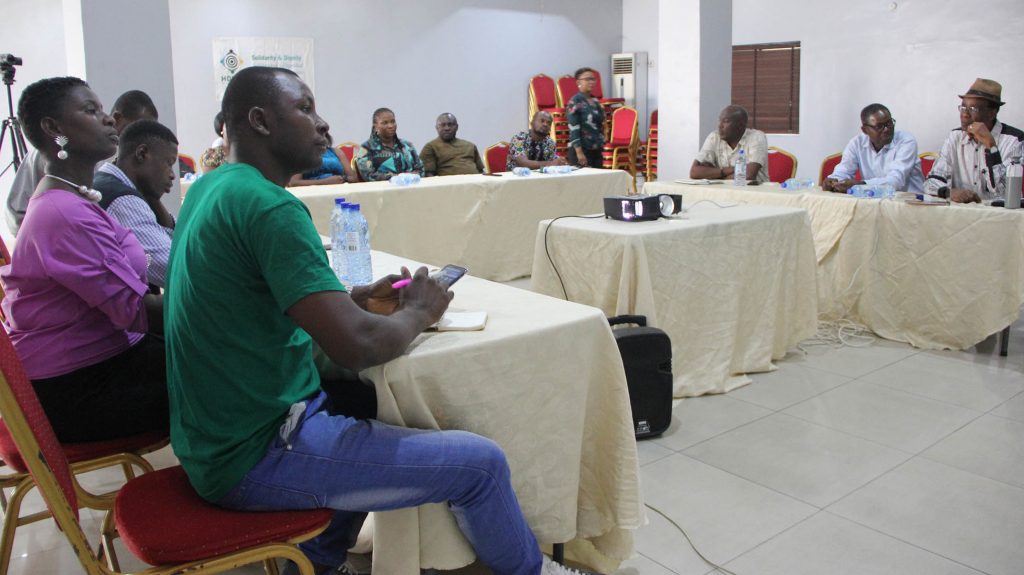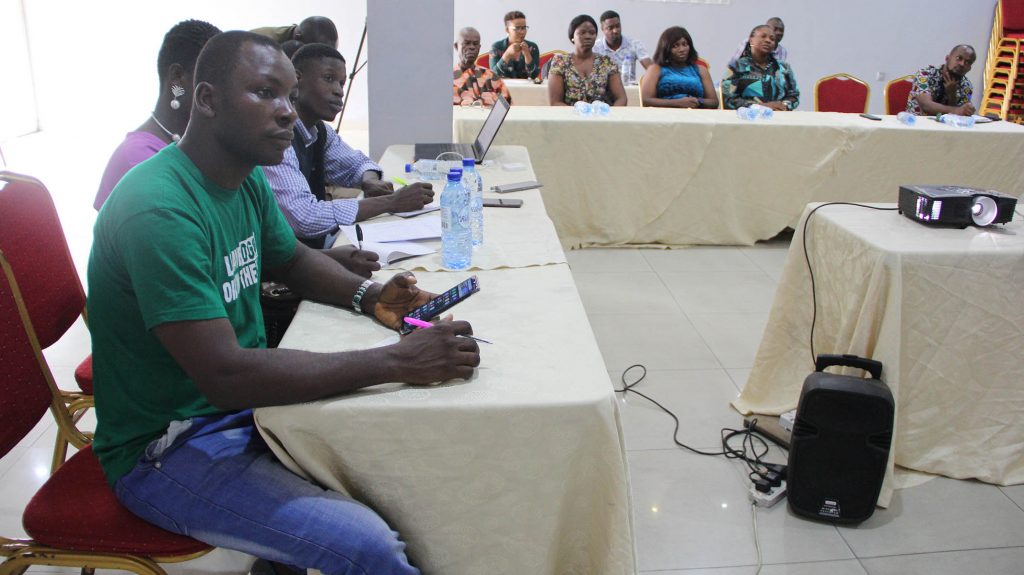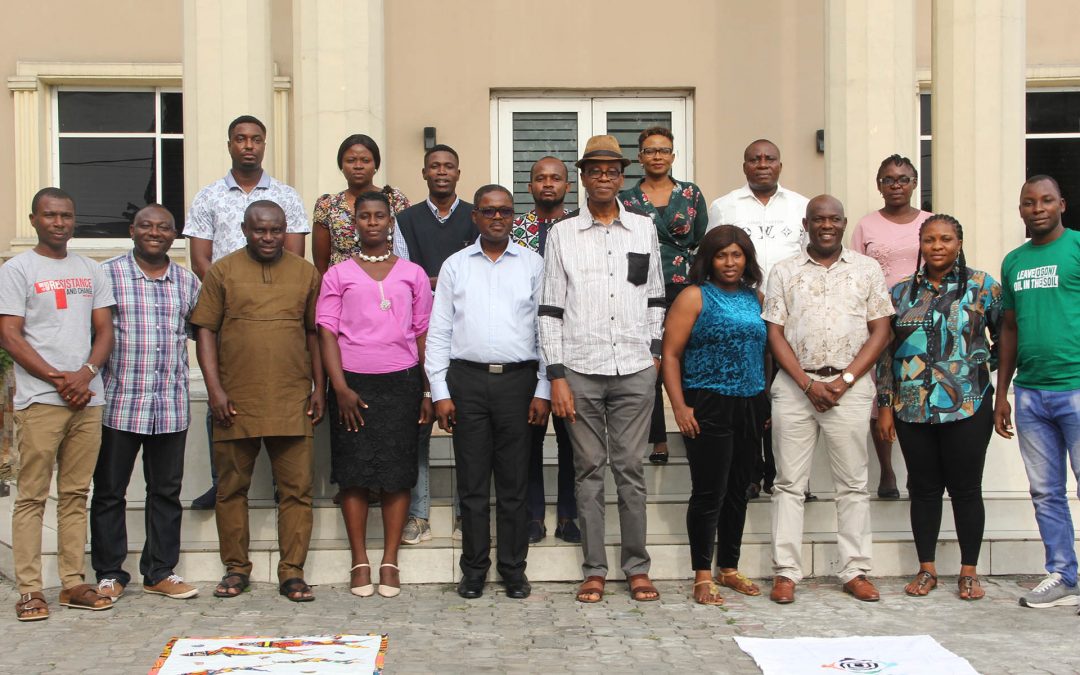The Gulf of Guinea is plagued by high level of insecurity and economic activities of dubious value. The region is largely not policed and is thus a zone of plunder with hundreds of thousands of stolen crude oil moving unhindered in the area. The fisheries stock in the gulf is also decimated by pollution from industrial sources as well as by unreported illegal fishing.
Against this backdrop, the ecological think tank, Health of Mother Earth Foundation (HOMEF), organized a workshop on the State of the Ocean/Gulf of Guinea, to share knowledge and build capacity of participants for the task of protecting the world’s oceans water bodies. The gathering also served as a platform for the introduction of the Global Oceans Hub for Human Rights for which HOMEF hosts the African secretariat. The Global Oceans Hub is envisioned as a global Centre of excellence and a go-to authoritative source for up-to-date information on the state of the oceans with particular focus on socio-economic and policy issues.
The Workshop exposed the impacts of climate change, particularly with reference to sea level rise and the concomitant loss of coastal lands, infrastructure and communities. Chief Nengi James, the Vice President of the Ijaw National Congress, characterized the massive impacts of ocean surge being experienced in the Gulf of Guinea as “Oceanification,” which he said is comparable to desertification. According to him, oceanification is compounded by the high levels of pollution, deforestation and the fragmentation of the Niger Delta ecosystems by the activities of oil and gas companies.
Chief Nengi James stressed that “With the deforestation going on in the Niger Delta and the loss of mangrove in the river, and the dangers of ocean encroachment on farmland and communities, the shore needs to be protected and the continuous advocacy for the protection and restoration of the mangrove forests will go a long way to preserve the Gulf of Guinea.”
In his presentation, Professor Fidelis Allen of the University of Port Harcourt stressed the need to care and protect the ocean environment. He said, “The governance process has been exclusive of the community and this has caused a negative relationship between man and his environment. Policies usually exclude local community from the roles they can play in protecting the environment. For countries in the Gulf of Guinea, oil has been conceptualized as a national security issue, and the slide into oil economy have brought the thinking that ‘without oil the world would end’. Those who drive the oil economy are oblivious and they sideline the community, which is the victim in all of these.”
Nnimmo Bassey, director, HOMEF while introducing the Global Ocean Hub for Human Rights warned of the negative impacts non-inclusive focus on Ocean or Blue Economy would have on the rights of coastal communities, biodiversity and the socio-economic wellbeing of ocean dependent communities. He decried the continued polluting activities in our water copies including oil wellhead blowouts, burning of oil vessels, gas flaring and other anti-environment activities. Noting that the oceans are getting warmer and faster than previously expected, Bassey called for urgent climate actions predicated on transiting away from fossil fuels dependence. The idea of the hub dovetails HOMEF’s and the FishNotOil campaign, the Ocean Not Oil campaigns in South Africa and the focus of the FishNet Alliance.
The workshop resolved that a Niger Delta region wide clean up exercise should be embarked upon by the Nigerian government. The need for mangrove restoration and the provision of shoreline protection was also stressed. The workshop welcomed the creation of the Ocean Hub and saw it as a necessary platform for sharing knowledge for the protection of the oceans and for securing the rights of citizens.
The Global Ocean Hub for Human Rights was initiated by the Rafto Foundation for Human Rights and the Institute for Human Rights and Business. Members of the alliance include the Bergen Chamber of Commerce and the Danish Institute for Human Rights. HOMEF hosts the secretariat in Africa.









